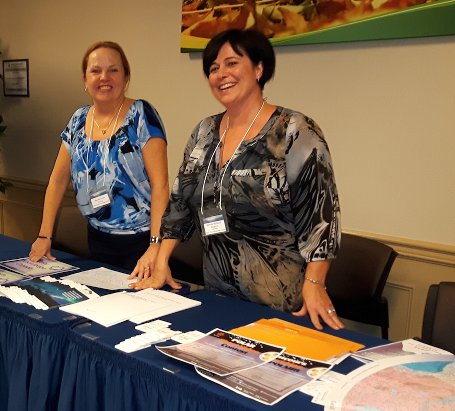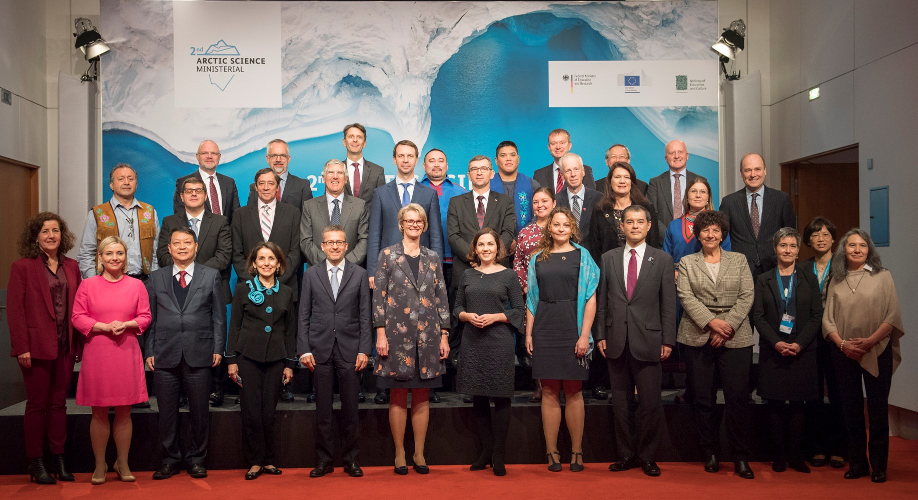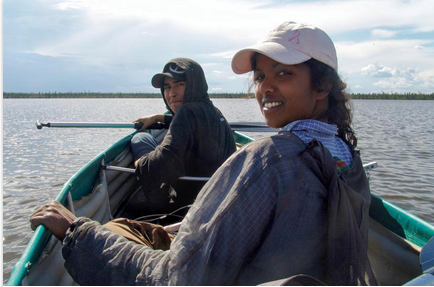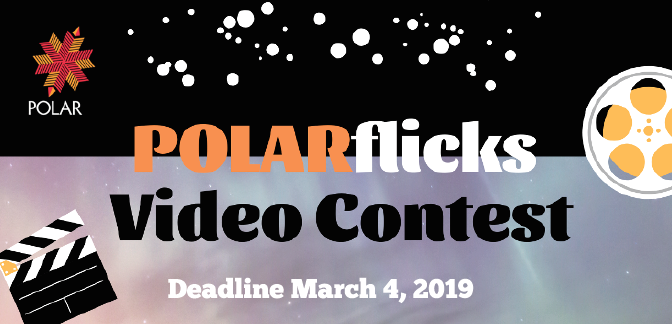Issue 10, Winter 2018/19
ACUNS Student Conference
POLAR Chief Scientist Martin Raillard gave the keynote address at the Association of Canadian Universities for Northern Studies (ACUNS) Student Conference in Edmonton (November 1-3). The conference provides an opportunity for emerging northern scholars to gather and share their research and experiences, and make connections with each other and learn of new opportunities.

Northern Science Award
The 2018 Northern Science Award was presented to the Nunavik Research Centre, at the ArcticNet Annual Scientific Meeting in Ottawa (December 10-14). For over forty years the Nunavik Research Centre in Kuujjuaq, Nunavik, has been conducting community-based science that serves the needs of Inuit. Envisioned, created, and owned by Inuit through the Makivik Corporation, the Centre has been at the forefront of developing research methodologies that incorporate scientific and Indigenous knowledge and is respected respected locally and internationally for its work, which includes environmental studies that help protect the health of people in Nunavik. The Northern Science Award honours a significant contribution to meritorious knowledge and understanding of the Canadian North and the transformation of knowledge into action. Laureates receive a $10,000 prize and the Centenary Medal, which commemorates the first International Polar Year (1882-83).
Submissions for the next Northern Science Award are due January 31st!
Deadline approaching for POLAR student award applications
The application deadline for POLAR’s student awards is January 31st 2019. The Polar Knowledge Canada Scholarship rewards a doctoral student at a Canadian university for outstanding work in polar studies; the POLAR northern resident scholarship supports long-term northern residents studying full-time at a university or college and working on a thesis; and part-time or full-time college or university undergraduate students who are long-term residents of the North are eligible for the POLAR northern resident award.
More information

Panel on supporting northern students
At the Canadian Science Policy Conference, held on November 7-9th in Ottawa, POLAR brought together experts from across the north to discuss how to help support the next generation of northern students. The panel included representatives from the Dechinta Centre for Research and Learning, Yukon College, Nunavut Sivuniksavut, and the federal government’s Centre of Excellence for Inuit Employment in Nunavut (Pilimmaksaivik). The participants emphasized the importance of collaboration and partnership in the early stages of research; understanding the experiences of northern students to help break down barriers to pursuing education; bringing Indigenous language, values and knowledge to the forefront; and encouraging and nurturing students’ natural curiosity, through applied research, mentorship and establishing long-term friendships.
Arctic Science Ministerial
POLAR played a leading role in coordinating Canada’s participation in the second Arctic Science Ministerial, with support from Global Affairs Canada and Innovation, Science and Economic Development Canada. The Ministerial, held in Berlin on October 25 and 26 2018, brought together science ministers, researchers and representatives of international organizations and Arctic Indigenous peoples to discuss the future of Arctic research. This year, the Ministerial also featured a Science Forum, which included delegates from the research communities of all participating countries. Canada was a strong advocate for the participation of Indigenous peoples and knowledge in the Ministerial.

POLAR’s Northern Scientific Training Program
Since 2015 POLAR has been administering the Northern Scientific Training Program (NSTP) which assists university students with northern travel and living expenses associated with their thesis research. Since its beginnings nearly 60 years ago the NSTP has assisted over 12,000 students. Nearly all of Canada’s northern scientists, and many others working in the northern field for governments and indigenous or other organizations, are former NSTP grant recipients. The NSTP application period for the 2019-2020 research season closed on December 1 2018, with applications received from over 35 universities.
More information

POLARflicks video contest
POLAR has launched POLARflicks, a video contest for early career researchers and Indigenous researchers. POLAR is working with the Association of Canadian Universities for Northern Studies (ACUNS) and the Association of Polar Earlier Career Scientists (APECS) on this contest, which encourages researchers to use imagination and creativity to share their excitement about their projects. The first prize is a trip to the Canadian High Arctic Research Station campus to job-shadow a POLAR researcher or participate in research activities.
More information
